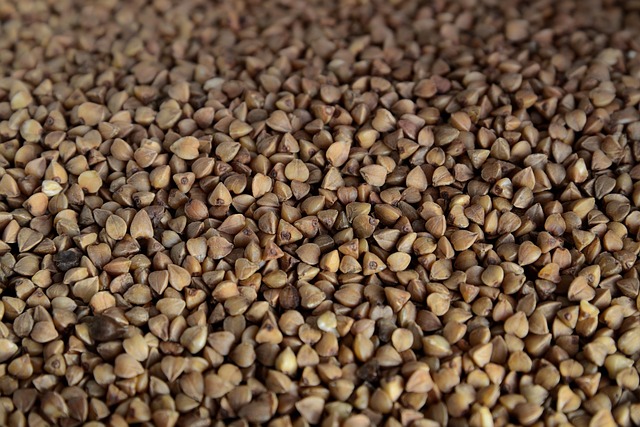Semaglutide diet programs leverage a hormone mimicking GLP-1 to suppress hunger and slow digestion for effective weight loss. Combining semaglutide injections with tailored dietary changes like reduced carbs and increased protein/fiber, these programs foster healthier eating habits and long-term success. Despite side effects, close monitoring by healthcare providers ensures safe and effective dosage tailoring for optimal benefits in structured weight loss.
Discover the power of structured weight loss programs using semaglutide, a groundbreaking hormone. This article delves into the science behind semaglutide’s efficacy, exploring its mechanism in curbing appetite and promoting fat burning. We’ll guide you through the benefits, drawbacks, dosage selection, dietary guidelines, lifestyle changes, and challenges, providing insights for successful semaglutide diet program integration. Uncover long-term success stories and future trends, offering a comprehensive roadmap to achieving your weight loss goals with this innovative approach.
Understanding Semaglutide: A Weight Loss Hormone

Semaglutide is a hormone that has gained significant attention in the field of weight loss. It’s a peptide hormone that mimics the effects of natural hormones in your body, specifically GLP-1 (glucagon-like peptide-1), which plays a key role in regulating appetite and blood sugar levels. In the context of a structured weight loss program, semaglutide is often integrated as part of a comprehensive strategy.
This hormone helps reduce hunger pangs and cravings by slowing down digestion, leading to increased feelings of fullness. As a result, individuals on a semaglutide diet program may find it easier to stick to their calorie-controlled meals. Moreover, its blood sugar-lowering properties make it beneficial for people with type 2 diabetes or prediabetes, adding another layer of health benefit to the weight loss journey.
How Semaglutide Diet Programs Work Scientifically

Semaglutide diet programs are based on a science-backed approach to weight loss. Semaglutide, a medication originally developed for diabetes management, has been shown to aid in significant weight reduction when used as part of a structured program. Scientifically, it functions by mimicking the effects of a natural hormone, GLP-1, which stimulates feelings of fullness and reduces appetite. This leads to decreased calorie intake and, consequently, weight loss.
These programs typically involve combining semaglutide injections with dietary changes, such as reduced carbohydrate intake and increased protein and fiber. The medication’s ability to slow gastric emptying further enhances satiety, allowing individuals to feel fuller for longer periods. As a result, they naturally consume less food, supporting their weight loss goals. This holistic approach ensures that participants not only lose weight but also develop healthier eating habits, promoting long-term success.
Benefits and Drawbacks of Semaglutide for Weight Loss

Semaglutide, a medication originally developed to treat type 2 diabetes, has emerged as a powerful tool for structured weight loss programs. Its mechanism involves mimicking the effects of a natural hormone that regulates hunger and blood sugar levels. This leads to significant benefits in a semaglutide diet program, including reduced appetite, delayed gastric emptying, and improved insulin sensitivity. As a result, individuals can naturally consume less food without feeling constantly hungry, aiding in calorie control and weight loss.
Despite these advantages, semaglutide is not without drawbacks. Common side effects include nausea, vomiting, diarrhea, and abdominal pain, especially during the initial stages of treatment. These gastrointestinal issues may be unpleasant for some users and can sometimes lead to difficulty adhering to the diet program. Additionally, semaglutide requires careful monitoring by healthcare professionals due to its potential impact on blood sugar levels, which could be a concern for individuals with diabetes or those taking other medications that affect glucose metabolism.
Selecting the Right Semaglutide Dosage for Your Program

When designing a structured weight loss program with semaglutide, choosing the right dosage is paramount. The optimal dose varies based on individual health factors and goals, so consulting a healthcare provider is crucial. They can assess your medical history, current medications, and desired outcomes to prescribe an effective and safe semaglutide regimen.
For a semaglutide diet program, starting doses typically range from 0.5 mg to 1.0 mg per week, with adjustments made based on patient response. Regular monitoring is essential to assess hunger levels, weight loss progress, and potential side effects. Working closely with your healthcare team ensures the dosage is tailored to your specific needs, maximizing the benefits of semaglutide in your weight management journey.
Foods to Include and Avoid on a Semaglutide Diet

When designing a structured weight loss program with semaglutide, it’s crucial to understand which foods align with this innovative diet approach. A semaglutide diet program encourages a balanced intake of nutrients while emphasizing whole, unprocessed foods and limiting highly refined carbohydrates. Incorporate plenty of lean proteins like chicken, fish, tofu, legumes, and low-fat dairy. Include healthy fats from sources such as avocados, nuts, seeds, olive oil, and fatty fish like salmon. Fiber-rich vegetables, fruits (especially berries), whole grains, and legumes should form the bulk of your carbohydrate intake.
On the contrary, a semaglutide diet discourages consumption of processed snacks, sugary beverages, and high-sugar desserts. It also recommends limiting starchy vegetables like potatoes and corn, as well as refined grains such as white bread and pasta. Foods high in trans fats, artificial sweeteners, and highly processed meats should be avoided to maximize the benefits of semaglutide therapy for effective weight loss.
Lifestyle Changes to Maximize Semaglutide's Effects

To maximize the effects of structured weight loss programs using semaglutide, lifestyle changes are crucial. This includes adopting a balanced and calorie-controlled diet that complements the medication’s action. The semaglutide diet program should focus on whole, unprocessed foods like lean proteins, fruits, vegetables, and whole grains while minimizing added sugars and refined carbohydrates. Staying hydrated by drinking plenty of water is also essential, as proper hydration supports digestion and overall health.
Regular physical activity plays a significant role in enhancing semaglutide’s effectiveness. Incorporating both aerobic exercise and strength training into your routine can help burn calories, build muscle, and improve insulin sensitivity. Additionally, mindful eating practices such as slowing down during meals, being aware of hunger cues, and avoiding distractions while eating can further optimize the benefits of the semaglutide diet program.
Common Challenges and Solutions in Semaglutide Programs

Many individuals embarking on a structured weight loss journey with semaglutide diet programs face common challenges. One significant hurdle is adhering to the prescribed dosage and timing of semaglutide injections, which requires discipline and consistency for optimal results. Solution lies in creating a routine and incorporating it into daily life; setting reminders or using medication trackers can help ensure timely administration.
Another challenge pertains to dietary adjustments demanded by the program. Transitioning to a low-carbohydrate diet can be difficult, as it often involves significant changes to mealtime routines and preferences. Solutions include gradually introducing healthier food choices, exploring diverse recipes that align with the semaglutide diet, and seeking support from nutritionists or online communities for tailored guidance and motivation.
Long-term Success Stories with Semaglutide Dieting

Many individuals seeking long-term weight loss success have found a promising ally in structured semaglutide diet programs. These programs, which incorporate semaglutide, a medication known for its appetite-reducing effects, have shown remarkable results over extended periods. Studies indicate that patients who stick to these structured plans often achieve and maintain significant weight loss, with some reporting up to 50% reduction in body weight after just one year.
Success stories abound, with participants sharing their transformations and improved quality of life. These long-term success stories highlight the efficacy of semaglutide diet programs in not only helping individuals lose weight but also keeping it off. By combining medical intervention with structured meal plans and support, these programs offer a comprehensive approach to healthy weight management, setting new standards for sustainable weight loss in the modern era.
Exploring Future Trends in Semaglutide Weight Loss Therapy

The future of semaglutide-based weight loss therapy looks promising, with ongoing research exploring its potential to transform how we approach obesity and related metabolic disorders. As scientists delve deeper into understanding the mechanisms behind semaglutide’s effectiveness, new delivery methods and personalized dosing strategies may emerge. Imagine a tailored semaglutide diet program that considers individual genetic profiles, lifestyle factors, and specific health goals, offering a highly efficient and safe path to sustainable weight management.
Additionally, advancements in technology could make semaglutide therapy more accessible and user-friendly. Digital platforms and mobile apps might play a significant role in monitoring patient progress, providing educational resources, and even delivering personalized doses through wearable devices. These innovations have the potential to democratize access to effective weight loss treatments, making semaglutide-guided diets more available to a broader population, thus revolutionizing the way we combat obesity in the future.
